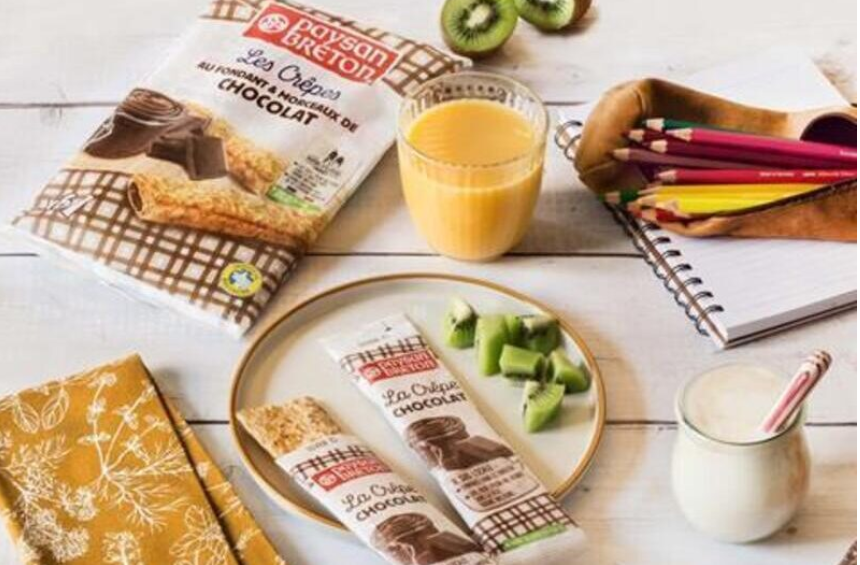
Laïta’s French Pancakes Get a Sustainable Makeover with Eco-Friendly Packaging
In a move towards sustainability, Laïta, the leading dairy cooperative in Western France, has introduced a major change to the packaging of its beloved Paysan Breton pancakes, a household name in France. As part of their commitment to reducing environmental impact, Laïta has upgraded the secondary packaging of their popular crêpes to a recyclable, mono-material solution.
Paysan Breton, known for its delicious crêpes in flavours like caramel, strawberry, and chocolate, is a favourite snack for French families. Traditionally sold in packs of six, these crêpes have been individually wrapped, but the packaging for the multi-pack was previously a combination of paper and plastic—something Laïta was eager to improve. With growing consumer demand for more sustainable packaging, coupled with France’s AGEC law and the EU’s PPWR regulations, the cooperative embarked on a journey to make their packaging more recyclable and environmentally friendly.
“We can see from our regularly conducted marketing studies that reducing the use of single-use plastic packaging is increasingly important for our customers. Regulation such as the AGEC in France and the PPWR in the EU are also pushing us to move progressively towards recyclability,” says Mathieu Boulc’h, Packaging Development & Procurement Manager at Laïta.
To meet these demands, Laïta sought a packaging supplier that could deliver a sturdy, recyclable material without compromising the quality or performance of the packaging. That’s when they turned to Walki, a well-known name in the packaging industry, renowned for their expertise in barrier board materials.
The teams from Laïta and Walki collaborated closely, spending an entire day together to discuss the project and establish a strong working relationship. Their goal was to create a secondary packaging bag that could handle the weight of the crêpes while ensuring durability and ease of recycling.
“The challenge was to balance the strength of the material with its ability to seal effectively, while also keeping it lightweight enough for efficient production,” explains Marie Barge, Business Development Manager at Walki. “We needed to ensure excellent printability for marketing purposes while adhering to the sustainability goals.”
Through rigorous testing and open communication, Laïta and Walki succeeded in developing a new paper-based secondary packaging that is not only strong and recyclable but also features water-soluble inks, further supporting the recycling process. This new material is now fully compatible with both current and future regulations, ensuring that the packaging is as eco-friendly as possible without compromising on production efficiency.
For Laïta, the switch to recyclable packaging aligns perfectly with their core values of responsibility and environmental stewardship. As Boulc’h puts it, “We’re thrilled to offer our customers a product that meets their expectations for both quality and sustainability. The new packaging is a testament to our commitment to reducing plastic waste and promoting a circular economy.”
The eco-friendly change is part of a larger trend in the food and beverage industry, where companies are increasingly prioritizing sustainable packaging solutions. As consumers become more environmentally conscious, brands like Paysan Breton are responding by adopting innovative, greener practices to reduce their carbon footprint.
Laïta’s new packaging solution marks a significant step forward in the company’s journey towards sustainability and sets a positive example for others in the industry.






